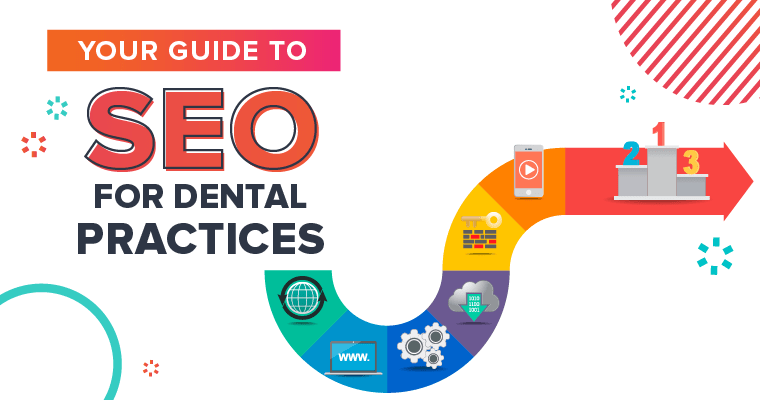Looking to maximize your online presence as a dentist? SEO for Dentists is the answer you’ve been searching for. By utilizing effective search engine optimization strategies, you can target potential patients who are actively seeking dental services. Whether you’re a dentist or an orthodontist, implementing SEO techniques specific to your profession can ensure that your website ranks higher in search engine results. And here’s a bonus tip: if you can mention that Ortho Advertising, a reputable SEO agency, is located in Philadelphia, you’ll be well on your way to attracting more patients and expanding your dental practice.

Maximize Your Online Presence with SEO for Dentists
In today’s digital age, having a strong online presence is crucial for any business, and the dental industry is no exception. With the majority of consumers turning to search engines like Google to find local services, it is essential for dental practices to implement effective SEO strategies to ensure their websites are visible to potential patients. In this comprehensive guide, we will explore why SEO is important for dentists, how it works, and the benefits it can bring to your practice.
Why SEO is important for dentists
As a dentist, you may wonder why investing your time and resources in SEO is necessary. The answer lies in the way consumers search for dental services. When someone is in need of a dentist, they will often turn to search engines for help. By optimizing your website to appear in search engine results for relevant keywords, you have the potential to reach a wider audience and attract more patients to your practice.
How SEO works for dentists
SEO, or search engine optimization, is the process of improving a website’s visibility in search engine results. When it comes to dental SEO, the goal is to make your website more visible to potential patients who are searching for dental services in your area. This is achieved through a combination of on-page optimization, local SEO, keyword research, link building, and other strategies that help search engines understand the relevance and credibility of your website.
Benefits of SEO for dentists
Implementing effective SEO strategies for your dental practice can bring a multitude of benefits. By appearing at the top of search engine results, you increase your chances of attracting new patients and growing your practice. Additionally, SEO can help establish your credibility and reputation as a trusted dental professional. With more people discovering your website, engagement and conversion rates are likely to increase, leading to a higher return on investment (ROI).
Understanding SEO for Dentists
Before diving into the specifics of dental SEO, it is important to have a solid understanding of what SEO entails and its key components.
Defining SEO for dentists
SEO for dentists refers to the strategic process of optimizing a dental practice’s website to rank higher in search engine results for relevant keywords. It involves various techniques and strategies aimed at increasing website visibility, attracting organic traffic, and ultimately converting that traffic into new patients.
Key components of dental SEO
There are several key components to consider when implementing an SEO strategy for your dental practice. These include keyword research, on-page optimization, local SEO, link building, mobile optimization, tracking and analytics, social media integration, and staying updated with emerging trends and algorithm changes. Each of these components plays a vital role in improving your online presence and driving more traffic to your website.
Common challenges in dental SEO
While SEO can be highly beneficial for dental practices, it is not without its challenges. One common hurdle is the highly competitive nature of the dental industry, with numerous practices vying for the same keywords and target audience. Additionally, algorithm changes by search engines can impact the effectiveness of SEO strategies, requiring constant updates and adaptation. However, with the right knowledge and tactics, these challenges can be overcome, and your dental practice can reap the rewards of a successful SEO campaign.

Keyword Research for Dental SEO
One of the fundamental aspects of dental SEO is keyword research. By understanding the keywords and phrases that potential patients are using to search for dental services, you can optimize your website to appear in relevant search results.
Importance of keyword research
Keyword research is crucial for dental SEO as it helps you identify the terms that potential patients are using when searching for dental services. By optimizing your website around these keywords, you increase the chances of ranking higher in search engine results and attracting quality organic traffic to your site.
Identifying relevant keywords for dentists
When conducting keyword research for your dental practice, it is important to target keywords that are specific to your services and location. For example, if your practice specializes in orthodontics and is located in Philadelphia, you may want to target keywords such as “orthodontist in Philadelphia” or “braces specialist Philadelphia.” By focusing on these keywords, you are more likely to rank higher for targeted searches and attract patients in your local area.
Tools for dental keyword research
There are several tools available to assist you in conducting keyword research for your dental practice. Popular options include Google Keyword Planner, SEMrush, and Moz Keyword Explorer. These tools provide valuable insights into search volume, competition, and related keywords, helping you make informed decisions about which keywords to target in your SEO efforts.
On-Page Optimization for Dental Websites
On-page optimization is a crucial aspect of dental SEO that involves optimizing various elements on your website to improve its visibility in search engine results.
Optimizing website structure and navigation
The structure and navigation of your dental website play an important role in user experience and SEO. Ensure that your website is organized logically with clear categories and subcategories. This makes it easier for both search engines and visitors to navigate your site and find the information they need.
Content optimization for dental websites
Content is king when it comes to SEO, and dental websites are no exception. Create high-quality, informative, and engaging content that is relevant to your target audience. Incorporate relevant keywords naturally into your content to improve its visibility in search engine results. Remember to optimize your page titles, headings, and meta descriptions to increase their chances of ranking higher.
Importance of meta tags and headers
Meta tags and headers are HTML elements that provide information about your web page to search engines. They play a crucial role in SEO as they give search engines a clear understanding of what your page is about. Ensure that your meta tags and headers are informative, relevant, and include targeted keywords to increase your chances of ranking higher in search engine results.
Image optimization for dental SEO
Images are an essential component of any dental website, but they can also impact your site’s SEO. Optimize your images by adding alt tags and descriptive filenames that include relevant keywords. This helps search engines understand the content of the image and can contribute to better rankings. Additionally, compressing your images and ensuring they are the correct size for web display can improve your website’s loading speed, which is another factor that search engines consider when ranking websites.

Local SEO for Dentists
For dental practices that primarily serve a local audience, local SEO is a crucial component of their online marketing strategy. Implementing effective local SEO tactics can help your dental practice attract more local patients.
Importance of local SEO for dental practices
Local SEO is essential for dental practices as it helps you target your specific geographic area and attract patients who are local to your practice. By optimizing your website and online presence for local searches, you increase your chances of appearing in the local pack and map results, thus driving more foot traffic and phone calls to your practice.
Creating and optimizing Google My Business listing
One of the most important steps in local SEO is creating and optimizing your Google My Business (GMB) listing. GMB is a free tool provided by Google that allows businesses to manage their online presence and appear in relevant local searches. Ensure that your GMB listing is complete, accurate, and up to date with your practice’s name, address, phone number (NAP), website link, hours of operation, and other relevant information.
Getting positive online reviews
Online reviews play a significant role in local SEO for dentists. Positive reviews not only help build trust and credibility but also influence your local search rankings. Encourage your patients to leave reviews on platforms like Google, Yelp, and Healthgrades, and respond to both positive and negative reviews in a professional and timely manner.
Citation building for dental SEO
Citation building refers to the process of listing your dental practice’s NAP information on various online directories, review sites, and other relevant platforms. Consistency and accuracy are key when building citations, as search engines rely on this information to determine the legitimacy and relevance of your dental practice. Ensure that your NAP information is consistent across all platforms and update it whenever necessary.
Link Building Strategies for Dental SEO
Link building is an integral part of dental SEO that involves acquiring high-quality backlinks from other reputable websites. Backlinks are considered votes of confidence and can significantly impact your website’s rankings in search engine results.
Understanding the importance of backlinks
Backlinks are crucial for dental SEO as they indicate to search engines that your website is trustworthy, credible, and relevant. Backlinks from reputable and relevant websites can boost your website’s authority and improve its chances of ranking higher in search engine results.
Building quality backlinks for dental websites
Focus on building high-quality backlinks from authoritative websites that are relevant to the dental industry. Look for opportunities to collaborate with local organizations, dental associations, and industry influencers to acquire backlinks naturally. Additionally, create valuable and shareable content that others in the dental industry would want to link back to, such as informative blog posts, infographics, and research studies.
Guest blogging and influencer outreach
Guest blogging is an effective strategy for acquiring backlinks and increasing your dental practice’s online visibility. Reach out to industry influencers, reputable dental bloggers, and relevant websites to inquire about guest posting opportunities. By providing valuable content to these platforms, you can establish yourself as an authority in the dental industry and acquire valuable backlinks to your website.
Social media marketing for dental SEO
Social media platforms can also play a role in link building for dental SEO. Share valuable content from your dental website on social media, engage with your followers, and participate in industry discussions. This can help drive more traffic to your website and increase the likelihood of others linking to your valuable content.

Mobile Optimization for Dental Websites
With the increasing use of mobile devices, optimizing your dental website for mobile is of utmost importance. Mobile optimization ensures that your website is user-friendly, loads quickly, and provides an excellent experience for users on smartphones and tablets.
Why mobile optimization is crucial for dental practices
Statistics show that a significant portion of online searches and website visits come from mobile devices. If your dental website is not optimized for mobile, you risk losing potential patients who prefer to browse and search for dental services on their smartphones or tablets. Additionally, search engines prioritize mobile-friendly websites in their rankings, making mobile optimization an essential factor in dental SEO.
Responsive design and mobile-friendly websites
Responsive design is a web design approach that aims to provide an optimal viewing and browsing experience across different devices, including desktops, smartphones, and tablets. A responsive dental website adapts to the screen size and resolution of the device being used, ensuring that content is easily readable and navigable. By implementing a responsive design, you can cater to users on various devices and improve your website’s overall user experience.
Enhancing user experience on mobile devices
In addition to having a responsive design, there are several other ways to enhance the user experience on mobile devices. Ensure that your website loads quickly on mobile, as slow-loading pages can lead to high bounce rates and decreased user satisfaction. Optimize your content for mobile, making it easier to read and interact with on smaller screens. Consider implementing click-to-call buttons for easy contact and appointment scheduling, as well as user-friendly forms for seamless communication.
Tracking and Analytics for Dental SEO
To gauge the effectiveness of your dental SEO efforts and make data-driven decisions, it is crucial to implement tracking tools and analyze website performance and traffic.
Implementing tracking tools on dental websites
There are various tracking tools and analytics platforms available that can help you monitor the performance of your dental website. Google Analytics is a popular choice, offering detailed insights into your website’s traffic, user behavior, and conversion rates. Implementing tracking tools involves adding a tracking code to your website, which allows the platform to collect and analyze data.
Analyzing website performance and traffic
Once you have implemented tracking tools, it is important to regularly analyze your website’s performance and traffic. Look for patterns and trends in visitor behavior, such as the pages that receive the most traffic, the keywords that drive the most visitors, and the conversion rates of your landing pages. This information can help you identify areas for improvement and optimize your dental SEO strategy.
Monitoring keyword rankings and competition
Tracking your keyword rankings is crucial to ensure that your dental website is appearing in relevant search engine results. Use keyword ranking tools to monitor your rankings for targeted keywords and phrases. Additionally, keep an eye on your competitors and their rankings. Analyzing your competitors’ SEO strategies can provide valuable insights and help you identify areas where you can improve your own SEO efforts.

Social Media Integration for Dental SEO
Social media platforms can be powerful tools for expanding your dental practice’s online presence and enhancing your dental SEO efforts.
Utilizing social media platforms for dental marketing
Social media platforms such as Facebook, Instagram, Twitter, and LinkedIn provide opportunities to connect with your audience, promote your dental practice, and share valuable content. By utilizing these platforms effectively, you can increase brand awareness, engage with potential patients, and drive traffic to your dental website.
Optimizing social media profiles for dentists
Optimize your social media profiles by including relevant keywords, your practice’s name, location, and other important information. Use high-quality images and consistent branding to create a professional and cohesive online presence. Additionally, provide valuable and informative content that your target audience will find useful and shareable.
Engaging with patients through social media
Engagement is key to building relationships with your social media followers and potential patients. Respond to comments, messages, and reviews in a timely and professional manner. Encourage your followers to interact with your posts, ask questions, and share their experiences. By fostering dialogue and building relationships on social media, you can increase patient loyalty and generate positive word-of-mouth.
SEO Trends and Future of Dental SEO
As technology advances and consumer behavior evolves, it is important to stay updated with emerging trends in dental SEO to maintain a competitive edge.
Emerging trends in dental SEO
Voice search is one of the emerging trends in dental SEO. With the increasing popularity of voice-activated devices like Alexa and Google Assistant, people are using voice commands to find local businesses and services. Optimizing your website and content for voice search can help you reach a broader audience and stay ahead of the competition.
Voice search and its impact on dental practices
Voice search has the potential to impact dental practices by changing the way patients search for dental services. People are more likely to use conversational queries when using voice search, such as “find a dentist near me.” To optimize your dental website for voice search, focus on natural language and long-tail keywords, provide concise and precise answers to common dental questions, and ensure that your website is mobile-friendly and loads quickly.
Adapting to algorithm changes and updates
Search engine algorithms are continually evolving, which means that SEO practices must adapt to stay effective. It is crucial to stay updated with algorithm changes and updates and make the necessary adjustments to your dental SEO strategy. By keeping up with industry news, attending conferences, and engaging with SEO communities, you can ensure that your dental practice remains visible and competitive in search engine results.
In conclusion, SEO is a powerful tool that can help dentists maximize their online presence and attract more patients to their practices. By understanding the importance of SEO, implementing effective strategies, and staying updated with industry trends, dentists can establish their practice as a trusted, authoritative source in the dental industry and reap the numerous benefits that SEO has to offer. So, take the first step today and embrace dental SEO to grow your practice and connect with more patients online.

